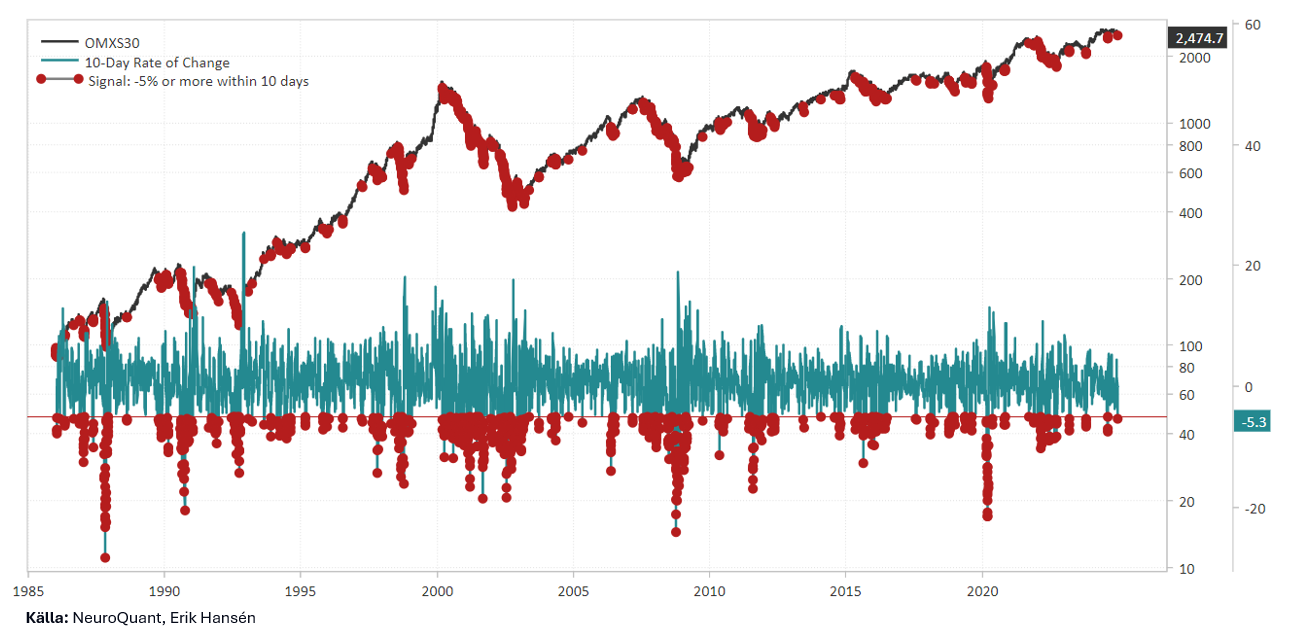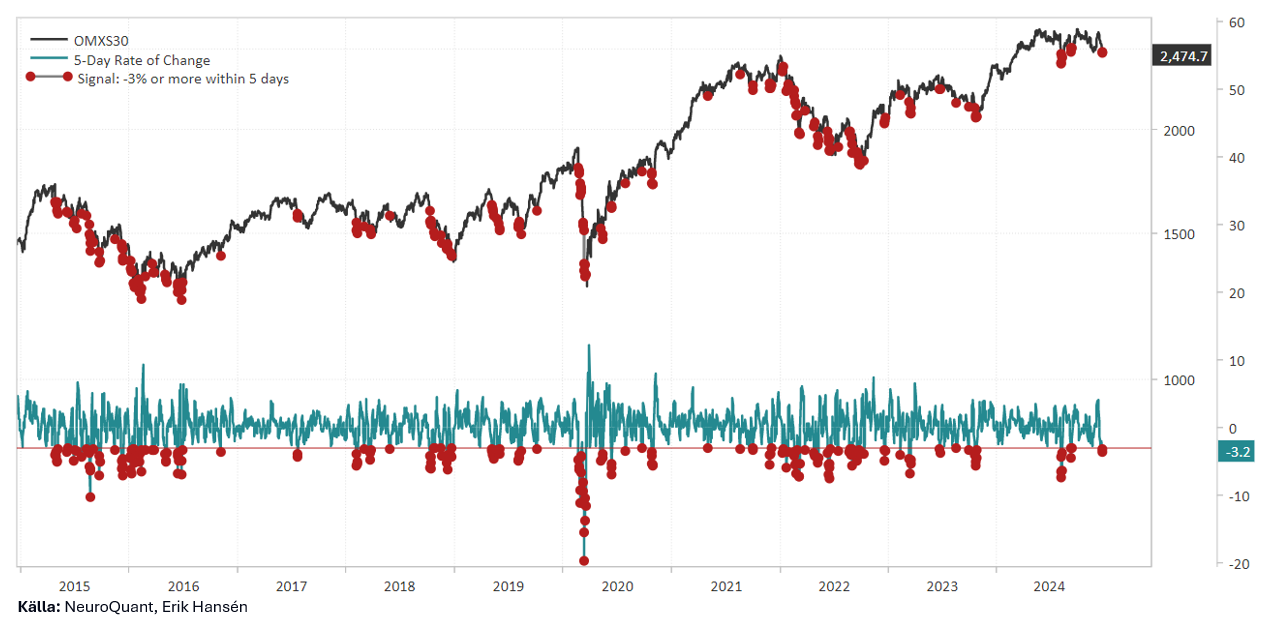Published by
Erik Martin Hansen
After studying at Uppsala University, Erik Hansén has worked in the financial industry since 2007 at several brokerage firms and traded privately. In his role as an analyst, Erik has written highly regarded market letters. View more posts
Related Posts

Monthly update: Investment strategies (multi assets)
By Erik Martin Hansén 02/06/2025

Position calculator for systematic strategies
By Erik Martin Hansén 18/04/2024

Weekly Report: Buy Signal in Bitcoin
By Erik Martin Hansén 01/06/2025
Categories Blog, Market comments
Weekly report: A red week across the board
Posted by Erik Martin Hansén
Post date 21/12/2024 Reading time - 2 min readThe weekly report gives you a short and concise summary without getting bogged down in unnecessary noise – all to keep you informed and well-prepared. You also get an overview of the progress of our systematic strategies.
In this edition:
Click here to read more about our strategies.
1. Stock market outlook 3–6 months ahead
In the medium term, we use a trend model to try to stay on the right side of the underlying trend. The trend score is not intended to pinpoint peaks or troughs, but to help us participate in uptrends and limit larger declines. In addition to the trend score, we consider other factors that can affect the primary trend, such as macroeconomic conditions, market positioning and sentiment, and seasonal patterns.
A stock market falling 5% in 10 trading days (two weeks) is not unusual behavior, but is something that happens often, in both positive and negative trends. The stock market has a long-term upward trend, but it does not rise linearly. The sharp short-term declines are a natural part of the market dynamics and the risk we as investors take. It is this risk, dealing with volatility and temporary declines, that is rewarded with higher returns over time. Understanding and accepting this is the key to success in the stock market.
OMXS30 and 10-Day ROC, since 1987
Even declines of 3% or more over a five-day period are something we should expect, as they happen quite often. It is unrealistic to think that we can avoid them all.
OMXS30 and 5-Day ROC, last 10 years
Login required to read the full weekly report
Log in
Not a customer? Open an account to access our analytics service.
RISK WARNING
Investing in financial markets always involves risk. Past performance is no guarantee of future results, and there is a possibility that you may lose all or part of your invested capital. Our analyses and indicators are based on historical data and statistical models, but these models cannot predict future market movements with complete certainty.
The value of investments may fluctuate significantly due to market conditions, company-specific factors and global economic events. It is important that you carefully consider your financial situation and your ability to bear potential losses before investing. The Service does not provide personal investment advice and recommends that you seek independent financial advice before making any investment decisions.
NeuroQuant employees may own or trade securities mentioned in analyses or based on indicators used in our services. This may potentially create conflicts of interest, but we strive for full transparency and professional integrity in all our activities. Following our analyses and indicators involves increased risk if the market moves in an unpredictable manner. You should only invest money that you are prepared to lose and understand that past performance, analyses or models provided through the service do not guarantee future results.